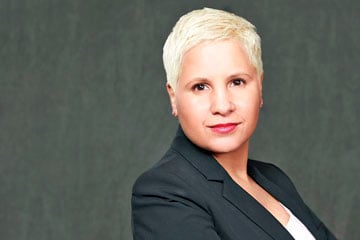
Equity and diversity groups plan to attend the Law Society of Ontario’s Convocation board meeting this week, wearing purple to show support for the statement of principles requirement.

Equity and diversity groups plan to attend the Law Society of Ontario’s Convocation board meeting this week, wearing purple to show support for the statement of principles requirement.
Organizations such as thne Canadian Association of Black Lawyers are gathering at the law society meeting on Thursday because the governing body will elect a leader and vote on the statement-of-principles requirement. Both issues have caught the attention of the StopSOP slate, which ran a unified campaign against the statement-of-principles requirement in this spring’s bencher election.
The statement of principles — a required written statement proclaiming support for equality and diversity — is one of several recommendations the prior law society benchers adopted in 2016 after a review of challenges faced by racialized lawyers and paralegals.
“We want to make sure that the benchers, especially new ones who weren’t part of the implementation of these [diversity] initiatives, they understand that we stand in solidarity,” says Lori Anne Thomas, a solo defence lawyer in Toronto and president of CABL, which supports the statement of principles requirement.
“We want to make sure that when they are making these decisions, they understand that there are people involved — that they see our faces and can recognize who we are, because it affects us. . . . We aren’t going to be able to actively participate in the Convocation, but we at least want to let the benchers know who is there and who is watching. We want to support whatever we can to continue the progress that was previously made by the law society.”
A representative of StopSOP’s 22 benchers said this week that the SOP requirement “compels lawyers and paralegals to endorse the ideology of identity politics as a condition of their licences.”
But Thomas says she disagrees that such a statement should be so controversial.
“The goal is to show why all of the equity, diversity and inclusion initiatives are important. I know there is a lot of focus on the statement of principles, but that’s one of many aspects,” says Thomas. “It has been demoralizing for all the equity-seeking group members — not just members of the associations but anyone who doesn't meet the majority — whether they are women, they are physically challenged or part of the LGBT+ community. We are feeling a bit of rejection of our concerns. We haven’t felt represented or at least acknowledged in the way that we felt we should in the legal community. These measures will at last assist us in feeling included in the legal community.”
Benchers will have another option at Thursday’s meeting, beyond upholding or abolishing the SOP requirement. Benchers Joseph Groia and Teresa Donnelly have proposed the “mandatory” statement be replaced with a suggestion that a statement of principles is “encouraged” by the law society.
Thomas says that if the issue around the statement of principles is that it compels speech, she expects to see many StopSOP benchers vote for the option to make it optional. She noted Law Society of Ontario statistics showing that only about 30 per cent of lawyers voted in the bencher elections that ended in April, whereas 97 per cent of lawyers say they have filled out a statement of principles.
“Just because the majority of the group won on that point [around repealing the statement of principles] does not mean they have, in our opinion, a mandate to get rid of all the initiatives,” says Thomas.